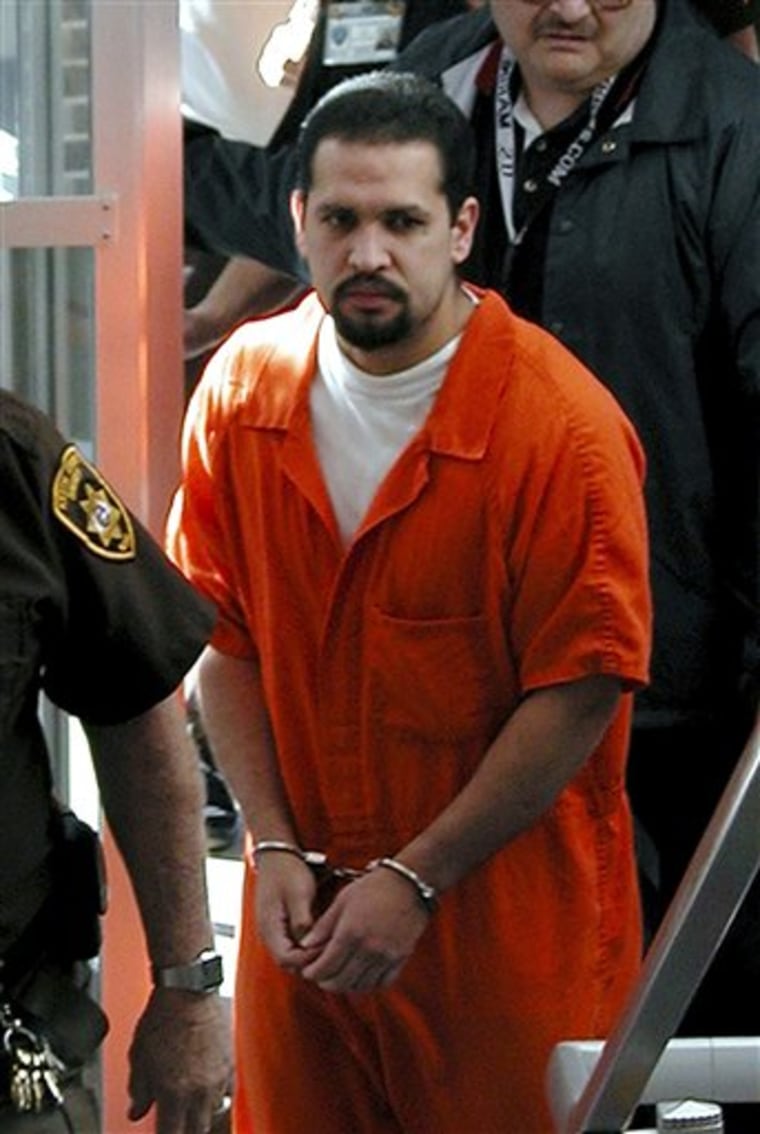The Nebraska Supreme Court ruled Friday that electrocution is cruel and unusual punishment, outlawing the electric chair in the only state that still used it as its sole means of execution.
In the landmark ruling, the court said the state Legislature may vote to have a death penalty, just not one that offends rights under the state constitution. The evidence shows that electrocution inflicts "intense pain and agonizing suffering," it said.
"Condemned prisoners must not be tortured to death, regardless of their crimes," Judge William Connolly wrote in the 6-1 opinion.
"Contrary to the State's argument, there is abundant evidence that prisoners sometimes will retain enough brain functioning to consciously suffer the torture high voltage electric current inflicts on a human body," Connolly wrote.
In his dissent, Chief Justice Mike Heavican said he did not think electrocution was cruel and unusual.
The high court ruled in the case of Raymond Mata Jr., convicted of the 1999 killing and dismemberment of 3-year-old Adam Gomez of Scottsbluff, the son of his former girlfriend.
Investigators testified that parts of the toddler's body were found at Mata's home in a freezer, a dog bowl and dog-food bag. Human bone fragments also were recovered from the stomach of Mata's dog.
The court stressed that its ruling Friday did not strike down the death penalty _ just electrocution as the method. In fact, Mata's death sentence was affirmed by the high court.
That could leave lawmakers scrambling to approve another means of execution during this legislative session.
Attorney General Jon Bruning was not immediately available to comment about the state's next legal move.
Nebraska Solicitor General J. Kirk Brown had argued for the state that the legal standard a method of execution must meet is to minimize the risk of unnecessary pain, violence and mutilation, not eliminate it. He said electrocution meets that test.
But the high court said electrocution "has proven itself to be a dinosaur more befitting the laboratory of Baron Frankenstein" than a state prison.
The use of the electric chair began to decline when Oklahoma adopted lethal injection in 1977, said Richard Dieter, executive director of the Death Penalty Information Center. As more states followed suit, it became more difficult to justify the electric chair, he said.
While Nebraska is the only state with electrocution as its sole method of execution, it is still an option or a backup method in nine other states: Alabama, Arkansas, Florida, Illinois, Kentucky, Oklahoma, South Carolina, Tennessee and Virginia.
All normally use lethal injection but have electrocution as an option if an inmate chooses it or in case state courts rule lethal injection unconstitutional, Dieter said.
